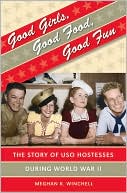Category Books
- Fiction Books & Literature
- Graphic Novels
- Horror
- Mystery & Crime
- Poetry
- Romance Books
- Science Fiction & Fantasy
- Thrillers
- Westerns
- Ages 0-2
- Ages 3-5
- Ages 6-8
- Ages 9-12
- Teens
- Children's Books
- African Americans
- Antiques & Collectibles
- Art, Architecture & Photography
- Bibles & Bible Studies
- Biography
- Business Books
- Christianity
- Computer Books & Technology Books
- Cookbooks, Food & Wine
- Crafts & Hobbies Books
- Education & Teaching
- Engineering
- Entertainment
- Foreign Languages
- Game Books
- Gay & Lesbian
- Health Books, Diet & Fitness Books
- History
- Home & Garden
- Humor Books
- Judaism & Judaica
- Law
- Medical Books
- New Age & Spirituality
- Nonfiction
- Parenting & Family
- Pets
- Philosophy
- Political Books & Current Events Books
- Psychology & Psychotherapy
- Reference
- Religion Books
- Science & Nature
- Self Improvement
- Sex & Relationships
- Social Sciences
- Sports & Adventure
- Study Guides & Test Prep
- Travel
- True Crime
- Weddings
- Women's Studies
Good Girls, Good Food, Good Fun: The Story of USO Hostesses During World War II »

Authors: Meghan K. Winchell
ISBN-13: 9780807832370, ISBN-10: 0807832375
Format: Hardcover
Publisher: University of North Carolina Press, The
Date Published: December 2008
Edition: (Non-applicable)
Author Biography: Meghan K. Winchell
Meghan K. Winchell is assistant professor of history at Nebraska Wesleyan University and state coordinator of National History Day, Nebraska.
Book Synopsis
Throughout World War II, when Saturday nights came around, servicemen and hostesses happily forgot the war for a little while as they danced together in USO clubs, which served as havens of stability in a time of social, moral, and geographic upheaval. Meghan Winchell demonstrates that in addition to boosting soldier morale, the USO acted as an architect of the gender roles and sexual codes that shaped the "greatest generation."
Combining archival research with extensive firsthand accounts from among the hundreds of thousands of female USO volunteers, Winchell shows how the organization both reflected and shaped 1940s American society at large. The USO had hoped that respectable feminine companionship would limit venereal disease rates in the military. To that end, Winchell explains, USO recruitment practices characterized white middle-class women as sexually respectable, thus implying that the sexual behavior of working-class women and women of color was suspicious. In response, women of color sought to redefine the USO's definition of beauty and respectability, challenging the USO's vision of a home front that was free of racial, gender, and sexual conflict.
Despite clashes over class and racial ideologies of sex and respectability, Winchell finds that most hostesses benefited from the USO's chaste image. In exploring the USO's treatment of female volunteers, Winchell not only brings the hostesses' stories to light but also supplies a crucial missing piece for understanding the complex ways in which the war both destabilized and restored certain versions of social order.
Publishers Weekly
Think of saddle-shoed coeds jitterbugging with the boys. The dance could be as sexually evocative then as "grinding" is now. It was all in a night's work for the thousands of young American women who volunteered to host soldiers in United Service Organizations clubs during WWII. The USO's domestic mission was to steer idle troops away from liquor, prostitutes and venereal disease, offering instead homemade cookies and wholesome smalltown girls. In constructing a portrait of wartime sexuality through the lens of the USO's American ideal of women, Winchell highlights what she views as the USO's middle-class prejudices. But she also offers studies of leadership in minority women's lobbying for such issues as canteen integration and access for women soldiers. Winchell, an assistant professor of history at Nebraska Wesleyan University, can't seem to let impressive research speak for itself, and her insightful observations are couched in the academic language of race, class, gender and the economics of women's work. The hostesses should have been the voice of this book-sometimes, they manage to be heard. 30 illus. (Nov.)
Copyright © Reed Business Information, a division of Reed Elsevier Inc. All rights reserved.Table of Contents
Introduction 1
1 To Make the Boys Feel at Home: Senior Hostesses and Gendered Citizenship 12
2 The Loveliest Girls in the Nation 44
3 Wartime Socializing 76
4 Nice Girls Didn't, Period: Junior Hostesses and Sexual Service 106
5 Courtship and Competition in the USO Dance Hall 135 Conclusion 171 Appendix Interview/Questionnaire Template 177 Notes 179 Bibliography 221 Acknowledgments 239 Index 241
Subjects
 American History
American History  United States History - 20th Century - General & Miscellaneous
United States History - 20th Century - General & MiscellaneousHistory
 American History
American History  United States History - 20th Century - Wars & Conflict
United States History - 20th Century - Wars & ConflictHistory
 American History
American History  United States History - General & Miscellaneous
United States History - General & MiscellaneousHistory
 Military History
Military History  World War II
World War IIHistory
 World History
World History  Women's History
Women's HistorySocial Sciences
 Women's Studies
Women's Studies  Women's History
Women's HistoryWomen's Studies
 Women's History
Women's History  Women's History - 20th Century
Women's History - 20th CenturyWomen's Studies
 Women's History
Women's History  Women's History - U.S. - General & Miscellaneous
Women's History - U.S. - General & MiscellaneousNonfiction
 History
History  American History
American HistoryNonfiction
 History
History  Military History
Military HistoryNonfiction
 History
History  World History
World History
